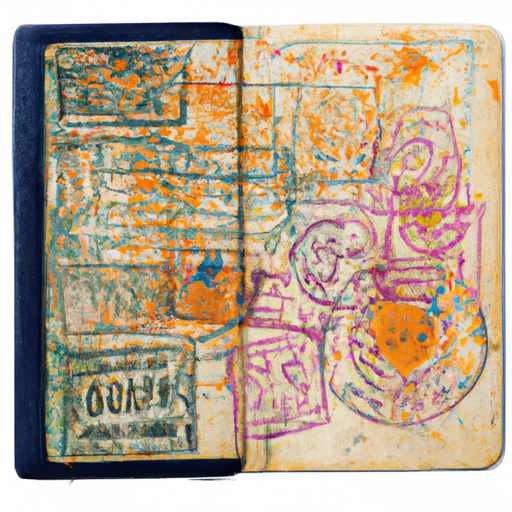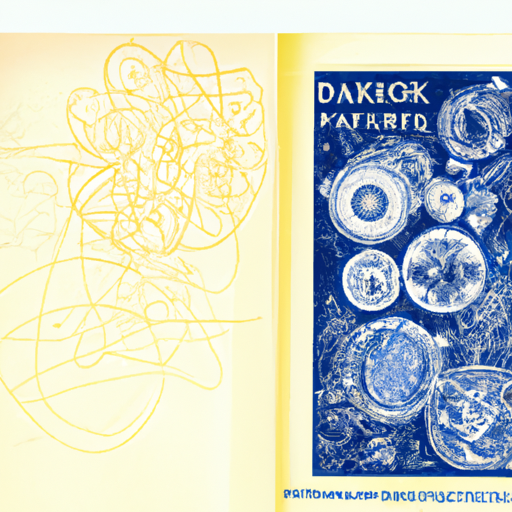Imagine stepping off a plane in a foreign land, feeling the rush of excitement and anticipation. As you immerse yourself in a new culture, you begin to notice something incredible happening within your mind. It’s an experience that goes far beyond simply exploring new sights and sounds – travel has the power to change your brain. From boosting creativity to enhancing problem-solving skills, this article explores the fascinating ways in which travel can transform and reshape the very core of who you are. Get ready to embark on a thrilling journey of discovery as we explore the profound impact of travel on your brain.
How Travel Changes Your Brain
Traveling is not just about exploring new places and experiencing different cultures; it also has a profound impact on your brain. When you embark on a journey, whether it’s a weekend getaway or a long-term trip, your brain undergoes several changes that contribute to personal growth and overall well-being. In this article, we will delve into the ways in which travel can change your brain for the better.
1. Increased Brain Plasticity
One of the most significant ways travel affects your brain is by boosting its plasticity. Plasticity refers to the brain’s ability to adapt and reorganize itself by forming new connections between neurons. When you step out of your comfort zone and expose yourself to new environments, people, and experiences, your brain is constantly challenged to make sense of it all. This process stimulates the growth of new neural pathways, enhancing your cognitive abilities and overall mental flexibility.
2. Boost in Creativity
Traveling sparks creativity by providing you with fresh perspectives and novel experiences. When you are exposed to unfamiliar surroundings, your brain is forced to think outside the box and find creative solutions to navigate through the new environment. Whether it’s deciphering a foreign language, trying a new cuisine, or immersing yourself in a different art form, these experiences stimulate the creative centers of your brain, allowing you to tap into your creative potential in ways you never thought possible.

3. Heightened Sensory Perception
The sensory overload of travel serves as a catalyst for heightened sensory perception. When you visit new places, your senses are bombarded with an array of sights, sounds, smells, tastes, and textures that are unfamiliar to you. This sensory stimulation not only enhances your appreciation for the world around you but also sharpens your sensory perception. As your brain becomes more attuned to the subtleties of different sensory experiences, you become more aware and present in the moment, leading to a deeper and richer travel experience.
4. Enhanced Memory Function
Traveling is a fantastic way to improve your memory function. As you navigate through unfamiliar territories, your brain is constantly engaged in processing and remembering new information. From remembering directions and landmarks to learning about the history and culture of a destination, your brain is continually exercising its memory function. Studies have shown that this type of mental exercise can lead to long-term improvements in memory and cognitive function, even after you return home from your travels.

5. Improved Cognitive Flexibility
Cognitive flexibility, the ability to adapt and switch between different tasks and thought processes, is a crucial skill that is enhanced through travel. When you are away from your daily routines, you are forced to adapt to new situations, problem-solve on the go, and think on your feet. These experiences challenge your brain to be flexible in its thinking and adaptability, ultimately improving your ability to navigate through life’s uncertainties with ease.
6. Stress Reduction
Traveling is a great way to reduce stress and promote overall well-being. When you step away from your everyday responsibilities and immerse yourself in a new environment, your brain enters a state of relaxation and rejuvenation. The anticipation and excitement of exploring new places release dopamine, a neurotransmitter associated with pleasure and motivation, which helps to alleviate stress and improve your overall mood. Additionally, being in nature or connecting with vibrant cultures can have a soothing effect on your brain, promoting a sense of calm and tranquility.

7. Increased Emotional Intensity
Travel has a unique way of intensifying our emotional experiences. Whether it’s the awe-inspiring beauty of nature, the joy of experiencing a new adventure, or the warm connections made with people from different backgrounds, travel evokes a wide range of emotions. These heightened emotional experiences create lasting memories in your brain, enhancing the emotional intensity of your travel experiences. The emotional impact of travel not only enriches your life but also contributes to your emotional well-being and personal growth.
8. Broadened Perspective
Traveling opens your mind to new perspectives and ways of life. When you expose yourself to different cultures, traditions, and beliefs, your brain becomes more adaptable and open to new ideas. This broadened perspective allows you to approach situations with a more open mind and a greater understanding and appreciation for diverse perspectives. As you immerse yourself in different cultures, your brain becomes more flexible and empathetic, enabling you to connect with others on a deeper level.

9. Development of Multitasking Skills
Traveling often requires you to multitask and juggle multiple activities simultaneously. From navigating through unfamiliar streets to organizing transportation and planning your itinerary, travel demands the development of multitasking skills. As you engage in these multiple tasks, your brain becomes more adept at switching between different activities, improving your multitasking abilities and overall cognitive efficiency. These acquired skills can have a positive impact on various aspects of your life, enhancing productivity and problem-solving skills.
10. Promotion of Empathy and Social Connections
Travel provides ample opportunities to connect with people from different walks of life. By engaging with locals and fellow travelers, you not only broaden your social network but also develop a greater sense of empathy. When you immerse yourself in different cultures, your brain learns to understand and appreciate the perspectives, customs, and traditions of others. This promotes empathy and compassion, allowing you to forge meaningful connections and cultivate a greater sense of global citizenship.
In conclusion, travel has the power to shape and transform our brains in remarkable ways. From increasing brain plasticity and boosting creativity to improving memory function and enhancing cognitive flexibility, the benefits of travel extend far beyond the physical experience. So, next time you have the opportunity to travel, seize it and embark on a journey that will not only enrich your life but also change your brain for the better.

